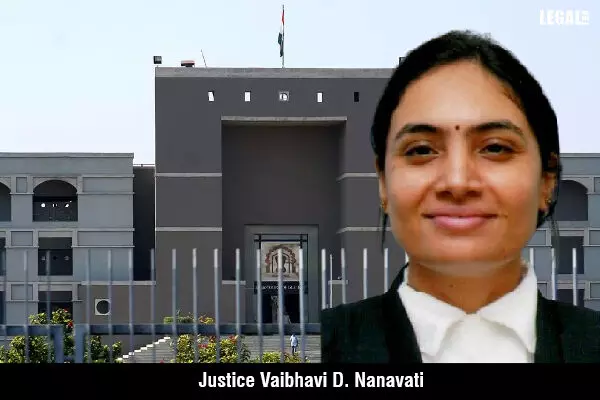- Home
- News
- Articles+
- Aerospace
- AI
- Agriculture
- Alternate Dispute Resolution
- Arbitration & Mediation
- Banking and Finance
- Bankruptcy
- Book Review
- Bribery & Corruption
- Commercial Litigation
- Competition Law
- Conference Reports
- Consumer Products
- Contract
- Corporate Governance
- Corporate Law
- Covid-19
- Cryptocurrency
- Cybersecurity
- Data Protection
- Defence
- Digital Economy
- E-commerce
- Employment Law
- Energy and Natural Resources
- Entertainment and Sports Law
- Environmental Law
- ESG
- FDI
- Food and Beverage
- Gaming
- Health Care
- IBC Diaries
- In Focus
- Inclusion & Diversity
- Insurance Law
- Intellectual Property
- International Law
- IP & Tech Era
- Know the Law
- Labour Laws
- Law & Policy and Regulation
- Litigation
- Litigation Funding
- Manufacturing
- Mergers & Acquisitions
- NFTs
- Privacy
- Private Equity
- Project Finance
- Real Estate
- Risk and Compliance
- Student Corner
- Take On Board
- Tax
- Technology Media and Telecom
- Tributes
- Viewpoint
- Zoom In
- Law Firms
- In-House
- Rankings
- E-Magazine
- Legal Era TV
- Events
- News
- Articles
- Aerospace
- AI
- Agriculture
- Alternate Dispute Resolution
- Arbitration & Mediation
- Banking and Finance
- Bankruptcy
- Book Review
- Bribery & Corruption
- Commercial Litigation
- Competition Law
- Conference Reports
- Consumer Products
- Contract
- Corporate Governance
- Corporate Law
- Covid-19
- Cryptocurrency
- Cybersecurity
- Data Protection
- Defence
- Digital Economy
- E-commerce
- Employment Law
- Energy and Natural Resources
- Entertainment and Sports Law
- Environmental Law
- ESG
- FDI
- Food and Beverage
- Gaming
- Health Care
- IBC Diaries
- In Focus
- Inclusion & Diversity
- Insurance Law
- Intellectual Property
- International Law
- IP & Tech Era
- Know the Law
- Labour Laws
- Law & Policy and Regulation
- Litigation
- Litigation Funding
- Manufacturing
- Mergers & Acquisitions
- NFTs
- Privacy
- Private Equity
- Project Finance
- Real Estate
- Risk and Compliance
- Student Corner
- Take On Board
- Tax
- Technology Media and Telecom
- Tributes
- Viewpoint
- Zoom In
- Law Firms
- In-House
- Rankings
- E-Magazine
- Legal Era TV
- Events
Gujarat High Court: MSEF Council Award Not Challengeable In Writ; Remedy To Be Availed Under A&C Act

Gujarat High Court: MSEF Council Award Not Challengeable In Writ; Remedy To Be Availed Under A&C Act
The bench relied on the judgment of the Supreme Court in a previous case
The Gujarat High Court has held that an award passed by the Micro, and Small Enterprises Facilitation (MSEF) Council under Section 18 of the Micro, Small and Medium Enterprises Development (MSMED) Act, 2006, cannot be directly challenged in a writ petition. The aggrieved party must challenge it under Section 34 of the Arbitration and Conciliation (A&C) Act, 1996.
The bench of Justice Vaibhavi D. Nanavati relied on the judgment of the Supreme Court in the India Glycols Ltd., vs. Micro and Small Enterprises Facilitation Council case, wherein it was held that a writ against an award by the MSEF Council was not maintainable. The award could be challenged only through Section 34 of the A&C Act, read with Section 19 of the MSMED Act providing for a 75 percent mandatory pre-deposit of the awarded amount.
On 23.02.2023, the MSEF Council (respondent No.2) passed an award under Section 18(3) of the MSMED Act, allowing the claims of respondent No.1. On 24.02.2023, the petitioner filed a post-award objection-cum-reply before the Council and it was executed.
Aggrieved by it, the petitioner appealed before the high court.
The petitioner challenged the order on the following grounds:
• The award is passed without providing an opportunity to the petitioner of being heard.
• The reply filed by the petitioner was not taken on record and was not passed on merits.
The respondent objected to the petition on the following grounds:
• A writ petition is not maintainable against an award by the MSEF Council.
• The award can only be challenged through Section 34 of the A&C Act read with Section 19 of the MSMED Act after making the mandatory pre-deposit.
The court analyzed that an award passed by MSEF Council under the MSMED Act could not be directly challenged in a writ petition and the aggrieved party had to challenge it under the A&C Act. Thus, it dismissed the petition.


